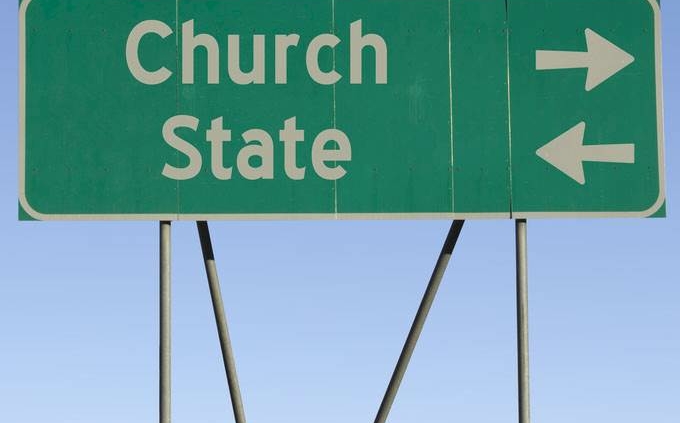Separation of Shul and State
In this moment of high political drama in U.S. and European history, politicians are claiming moral and even spiritual mantles to advocate causes. This week’s Torah portion (Balak) focuses us on that political use and misuse of spiritual authority.
Balak was king of Moab, through whose desert territory the Israelites had to travel en route to their destination. Balak resented the intrusion: he recalled how the Israelites triumphed over Balak’s ally and now feared that they would consume him also (Num. 22:3-4). Balak summoned his priest, Bilaam, to curse the Israelites so that Balak could defeat them (Num. 22:6).
In modern terms: the head of government commanded spiritual authority to achieve a policy and political goal.
If this idea offends, it’s because the “separation of church and state” is a core ideal of civil society. Our framers taught from experience that excess power in one hand risks danger (for both secular powers and spiritual ones), so they separated powers – secular from spiritual, federal from state, executive from legislative, judicial from both. We’ve been fighting those border wars ever since.
Fast forward to modern U.S. politics. How often do politicians claim spiritual mantles for their positions? How often do candidates wear cloaks of faith as political tool or single out one faith for diatribe or worse? How often do houses of worship and faith-based educational institutions advocate for candidates and political causes?
How separate should separate be, and why?
I approach this question with skin in the game. I’m among the only public officials in the U.S. also to serve an active Jewish pulpit. I’m a constitutional lawyer and judicial official sworn to uphold the rule of law, bound to one of the nation’s strictest judicial ethics codes, with extensive training in institutional governance and public ethics. If anyone should advocate and embody a wise separation of powers that limits power and its mere appearance, it ought to be me. And yet, I also was ordained as a rabbi. I serve a synagogue. I co-lead a spiritual organization. I teach in two seminaries. I counsel congregants and clients. All of this is legally and ethically valid.
Ethics and separation of powers aren’t about broad feel-good pronouncements: we have more than enough of those in spiritual life and secular life – and they don’t get us very far. We rarely need boundaries so rigid that they entirely exclude: that’s why the U.S. Supreme Court repeatedly upheld “IN GOD WE TRUST” on our currency, a pledge of allegiance to a flag of “one nation under God,” and clergy elected to office. What we need in deciding issues of ethics and governance is caution and reflection, facts over appearances, and level-headed reason – not discrimination and not walls.
Against that backdrop, what was most troubling about Balak using Bilaam’s spiritual role to curse Israel was singling out any one people for special, sickening treatment – then doing so under the validating cover of spirituality. By definition, religion and spirituality are never about that. Anyone who says or behaves otherwise is unworthy of either secular or spiritual authority.
We make values real by what we say and what we do, whom we empower and how. Take that debate to your dinner tables, workplaces, vacations and houses of worship – and the ballot box.
R’ David Evan Markus






 Evan J. Krame was ordained as a rabbi by the
Evan J. Krame was ordained as a rabbi by the